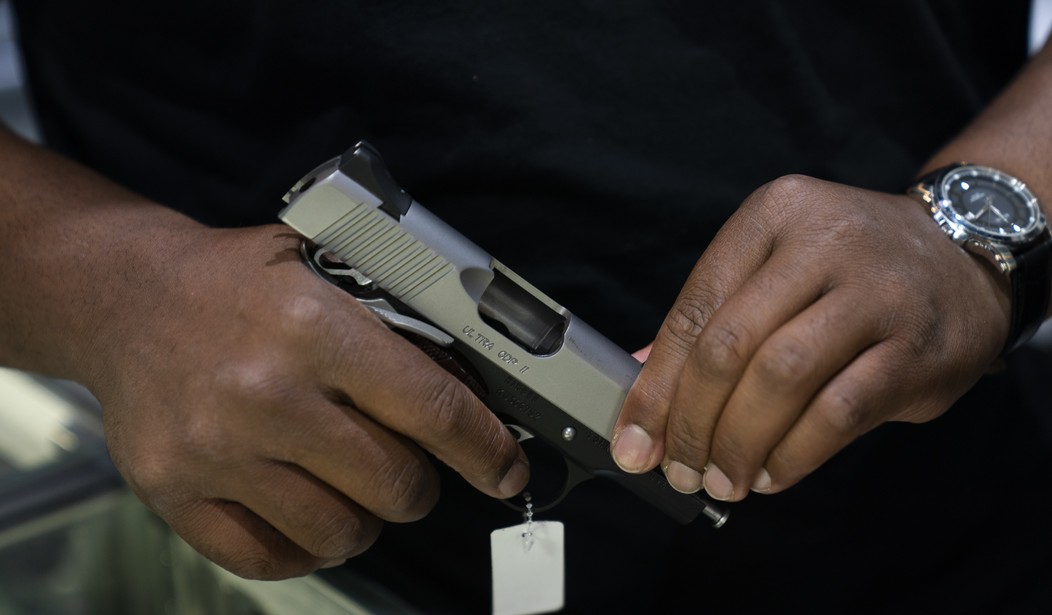If you thought the debate over the constitutionality of bans on handguns was settled by the Heller decision in 2008, you’re correct. It appears, however, that attorneys for the Cortland Housing Authority in Cortland, New York have never heard that the Supreme Court ruled that categorical bans on an entire class of arms violate the rights protected by the Second Amendment.
In their response to a new lawsuit filed by the Second Amendment Foundation and several individual tenants, the CHA maintains that despite language in its lease agreement stating tenants are “[n]ot to display, use, or possess or allow members of Tenant’s household or guest to display, use or possess any firearms (operable or inoperable) or other weapons as defined by the laws and courts of the State of New York anywhere on the property of CHA,” that doesn’t amount to a categorical gun ban.
Why? Because under their reading of New York law, some rifles and shotguns aren’t technically considered “firearms”, which means that tenants “may possess rifles and shotguns on CHA property without incurring a breach of the lease as well as other traditional hunting weapons such as a crossbow.”
Even if that is how firearms are defined in New York statute, the Supreme Court has already said that bans like the one imposed by the Cortland Housing Authority are non-starters. As Justice Antonin Scalia wrote for the majority:
The handgun ban amounts to a prohibition of an entire class of “arms” that is overwhelmingly chosen by American society for that lawful purpose. The prohibition extends, moreover, to the home, where the need for defense of self, family, and property is most acute. Under any of the standards of scrutiny that we have applied to enumerated constitutional rights, banning from the home “the most preferred firearm in the nation to ‘keep’ and use for protection of one’s home and family,” would fail constitutional muster.
The Cortland Housing Authority does acknowledge that Heller “established that the ‘central component’ of the Second Amendment is the inherent right of self-defense'”, but amazingly, that’s the only mention of the case in the CHA’s motion to dismiss. Not once does the CHA attempt to explain how its ban on firearms can comport with the Supreme Court’s decision that Washington, D.C.’s ban on handguns violated the constitutional rights of District residents. Instead, they argue that public housing authorities should somehow be able to enact such bans because of the “layers of complexity that make them not analogous to other types of properties that courts are often required to review with respect to constitutional claims.”
Such complexities include: (1) the governmental interest in preserving the facility as affordable housing; (2) the proprietary right of the landlord to control its property; (3) the exercise of the state police power to control crime; (4) gun-related crime problems specific to public housing; (5) the liberties inherent in a residential premises; and (6) the property interests that tenants have in the occupancy. Thus, public housing developments are sui generis for which this nation has no prior historical equivalent to prior to the Twentieth century. PHAs and public housing developments were “unimaginable at the founding” of our Nation that the government would act as landlord and provide low-income housing to its citizens
While public housing authorities may be a modern creation, high-crime neighborhoods and the government’s interest in promoting public safety are nothing new, and there are no analogous statutes that the CHA can point to in defense of its ban. The closest comparisons the housing authority’s attorneys could come up with are “governmental regulation of family within one’s home and a restriction of firearms in the same.”
With respect to a PHA tenant’s fundamental right to family, HUD and PHAs regulate whether certain members of a family may live in a public housing development. Specifically, members of tenant’s family that demonstrate a pattern of alcohol abuse, engaged in drug related activities, have used illegal drug use, or are registered sex-offenders are all subject to immediate eviction or denial to public housing developments. These law regulations impact a tenant’s fundamental right to family; more particularly, the right for a family to live together. Similarly, the lease provision limiting certain firearms from its properties, including tenants’ residences should also be upheld based upon the historic analogy of the government limiting the equivalent fundamental family rights of individuals in public housing.
Every one of the categories the CHA points to involves law-breaking on the part of a tenant’s family member, with the possible exception of a pattern of alcohol abuse. That isn’t even close to the prohibition that the housing authority imposes on tenants who can and would lawfully possess a pistol in their apartment were it not for the fact that they’d be evicted if they did so.
If the best argument the Cortland Housing Authority can muster is “we’re not banning all guns, just those defined as firearms under New York law”, I’m not even sure why it’s bothering to waste time and taxpayer money defending their prohibition. The most obvious guess would be a deep seeded hostility towards the right to keep and bear arms coupled with a paternalistic approach to the tenants who depend on the agency for affordable housing, but whatever the reason, the folks in charge of the housing authority are compounding their error by defending the indefensible… instead of simply allowing their tenants to defend themselves with the class of arms most commonly owned and used for that purpose.








